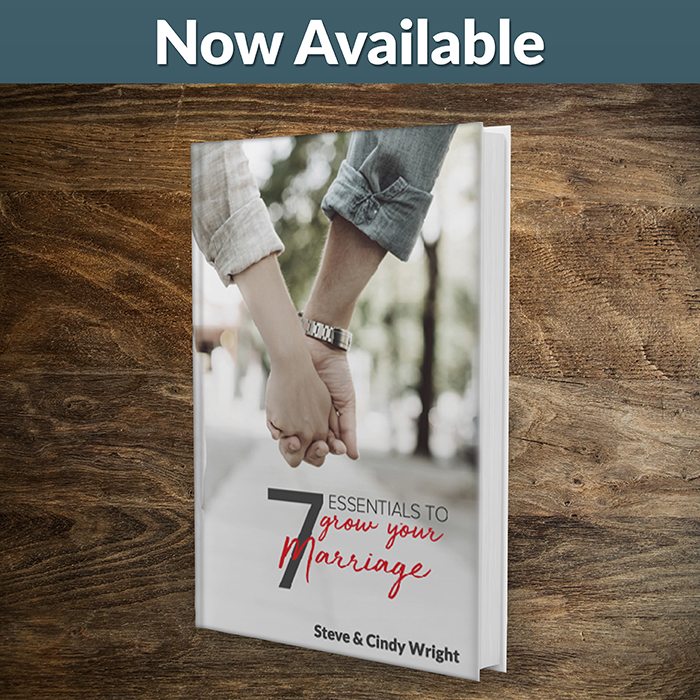 The title of this Marriage Insight is “Love is Fragile — Handle with Care.” We came upon this title after reading something that psychologist Jean Lush said in a radio interview. In this interview she talked about spouses who fight with each other in toxic ways. We’re guilty of doing that earlier in our marriage. And we could still do that if we aren’t careful.
The title of this Marriage Insight is “Love is Fragile — Handle with Care.” We came upon this title after reading something that psychologist Jean Lush said in a radio interview. In this interview she talked about spouses who fight with each other in toxic ways. We’re guilty of doing that earlier in our marriage. And we could still do that if we aren’t careful.
But when Jean said what she did in the following portion of the interview, it got us thinking, “She’s right. We never thought of it that way.” Perhaps it may be the same for you. So, we’re going to first share with you what she said. And then we will offer a few of our own thoughts on the issue.
Love is Fragile
Here’s what Jean Lush said for you to prayerfully consider:
“Love in a marriage has got to be guarded very carefully. I just don’t think that great love can stand too much anger. It can stand some. But the trouble with anger is it escalates until it becomes destructive. When one person expresses it, the other’s only waiting their turn to hit back with more anger. And so it begins something that eventually people, who once had great love for each other, wake up one morning and find it’s simply gone because it’s really been destroyed.”
Later in the interview Jean makes the point that spouses should not ignore issues that make us angry. But we must consider how and when we deal with them. She states:
“I am saying—it needs time. Look, I think hurling anger is a luxury you can’t afford in a marriage. Oh yes it brings immediate catharsis perhaps. But you’re going to have something bitter there to deal with. It’s something that goes on and on and on. So it does not pay in the long run.
“I feel that people have got to regard love as a tender, fragile thing that has to be guarded all the time. It can’t handle anger, or very little of it. I don’t think love is a tough, eternal thing between a man and a woman. This is why I say, ‘Hey, husband and wife, be careful how you use your anger. Above all things, your marriage isn’t the place to vent all that anger, even though your spouse upsets you.'” (From a September 2019 Dr James Dobson radio interview)
WOW! Again, we never thought about love this way before.
Fragile Love?
Jean is right. Human love IS fragile. We can’t continually insult each other and expect it to stay in tact or grow in a positive direction. We need to be careful and prayerful in how we deal with our love for one another—with a mindset that we need to grow it. Oh, how we wish we knew this earlier in our marriage! A lot of damage could have been prevented. But we never knew!
Earlier in our marriage we just assumed that we would always feel love for each other, no matter what! We believed our love could weather any storm that came our way. But what we didn’t realize is that the most difficult assaults to our love would come from each other. And that’s just not right! We shouldn’t have done that to each other.
We’ve learned differently since then. We thank God for that—literally! He is the one who guides us to be kinder to each other. And He is also impressing upon us to speak the truth in LOVE to each other. Expressing truth, motivated by love is respectful and kind.
All of this is something that Dr James Dobson is credited with saying.
“Love, even genuine love, is a fragile thing. It must be maintained and protected if it is to survive. To keep your marriage vibrant and healthy, you simply have to give it some attention.”
Sometimes the “attention” we are to give involves growing our love by continuing to romance each other. (We’ll talk about this in an upcoming Marriage Insight. Plus, you can look around this web site right now. You’ll find LOTS of posted info to help you grow your romance.)
Wisely Approaching Your Love
Other times, as we’re talking about here, it involves being careful how we treat each other. Yes! We must deal with real issues. But in doing so, we must be wise in our approach. Relationship expert, Dr John Gottman, stated it this way:
“In a sense, a marriage lives and dies by what you might loosely call its arguments, by how well disagreements and grievances are aired. The key is how you argue—whether your style escalates tension or leads to a feeling of resolution.”
We’ve seen couples rip and tear into one another verbally. They don’t hold anything back. Sadly, we used to be one of those couples. But we’ve learned through experience that love IS fragile. You can’t treat each other like mortal enemies one minute and expect everything to be good between you. Eventually, it won’t be. Those poisonous confrontations start adding up. And then we wonder where our love went. Actually, we killed it… one toxic fight after another.
Growing Love Again?
Now, can we grow love for one another again? Yes! It happened to us. And we’ve seen this happen in many, many other marriages. It takes a lot to get there; but it can and DOES happen. But why should we test our love like that? Why should we repair what we’ve broken when we can prevent it from happening in the first place? Wouldn’t it be wiser to treat love as a fragile thing to prevent so much pain?
It’s true what Toni Sciarra Poynter wrote:
“We sometimes treat those closest to carelessly. That is because we count on their commitment to keep them close to us. But we need to see their love as the rare and fragile gift it really is. The fact that it’s fragile doesn’t mean that it isn’t strong. It does mean, however, that our partner has exposed to us the most delicate, tender part of himself [or herself]. We must guard it well. For if we abuse our partner’s love, we are wounding the greatest gift he [she] can give, leaving him [or her] with nothing.” (From the book, “From This Day Forward: Inspirations for Couples”)
Yes, many spouses can hang on for a lifetime, even if you give them nothing to love about you. They dig in and keep their vows, regardless. Many times it is because they believe they also made this vow to God. And that’s true. But why would you want to put your spouse in that place? And why would you put your love in that place? Doesn’t it make sense to instead, go the extra mile to view love as a fragile, precious thing.
IS Human Love Fragile?
Something was said in the Disney movie, “Frozen 2” that reminded us of this issue on love being fragile. In it, the character Kristoff looked at Anna after she apologized for something. He then said, “It’s ok—my love is not fragile.” Normally, we would applaud that statement—IF a real person said it. But a real person didn’t say it. It was stated in a fairy tale movie. In reality, love needs to be handled with care and with prayer. Drs. Les and Leslie Parrott stated it well:
“Love by itself is seldom sturdy enough to support a couple when their marriage is challenged by bad things. Love, while being a good catalyst for marriage, cannot sustain it without the assistance of four other essential components. For a marriage to flourish for a lifetime, love must work hand in hand with open communication, unwavering commitment, regular forgiveness and sincere empathy.” (From the Today’s Christian Woman article, “Make Love Last”)
To make your love within your marriage flourish, consider the following:
“In marriage, when we’re not wise to keep watch over our attitudes, actions, and our communication with our spouses, we set off explosions, so to speak. When harsh words and judgments are carelessly thrown about, they cause devastation. …Develop the skills of self-discipline, of knowing when to take a time-out, and of recognizing when you’re feeling defensive, to keep yourself from exploding on your spouse.” (Jim Burns, from Marriagetrac article, “Mistakes That Can Sink Your Marriage”)
Additionally Realize:
“When we’re debating issues that are highly emotional for one or both of us, it’s easy to slide into a place of overreaction. When we allow our emotions to govern our discussions, we can quickly become unreasonable. And it’s almost impossible to have a constructive conversation with someone you can’t reason with.
“…Resolution Tip: If your spouse is being unreasonable, stop feeding into their emotional reaction. Instead, end the conversation with a polite statement like, ‘I’m going to give you space now;’ then stick to it. Chances are, your spouse will come back around after they’ve cooled down.” (Drs Les & Leslie Parrott, from their article, “Ways to Decide Whether Silence is Best – Pt. 2”)
That won’t always work. Some spouses will keep following you around. But “as far as it depends upon you” (as the Bible states) do what you can to de-escalate the situation. We have more info on this situation in the past Marriage Insight titled, De-escalating Fights in Your Marriage.
Do what you can do.
You may also be thinking that you aren’t the only one involved in this spousal fighting equation. And that’s true. All you can do is what you can do. Just make sure that you aren’t the one who is causing damaging your marital relationship. Ask God to guide you in this. Love IS fragile—from a human standpoint. But God can show you how to strengthen and live out “a life of love.” Do what YOU can to preserve and grow it—not damage it (with God’s help).
So in closing, here are a few additional thoughts and “fighting tips” for you to consider. See what you can use. Perhaps they will help you in how you work out your disagreements.
Making Disagreements Safer
“You know what happens when you open a soda can that’s been shaken, right? Because it makes such a huge mess, most folks wait until the pressure inside the can subsides before popping the top. Try that with your mouth the next time you’re ticked off and ready to explode verbally at your spouse. Wait until your emotions subside, THEN open your mouth. It’s the way to keep from making a huge mess in your marriage.” (Kevin B. Bullard)
But:
“If you have played the fool and exalted yourself, or if you have planned evil, clap your hand over your mouth! For as churning the milk produces butter, and as twisting the nose produces blood, so stirring up anger produces strife.” (Proverbs 30:32-33)
Keep in mind:
“Arguments can’t be avoided, but destructive ones can.” (Linda and Charlie Bloom)
And if possible:
“Make your bedroom a fight-free zone. Don’t fight in bed. Your bed should be reserved for sleep and romance. If you start associating it with complaints or issues that you’re working through, you’ll think of it as emotionally unsafe. You’ll then start to avoid each other. So, hash out disagreements before turning in, or at least agree to save the discussion until morning.” (Readers Digest Editors)
But perhaps your bedroom is the only room you can use to fight. If so, Paul Byerly gives this tip:
“When we were first married and were having a lot of stressful interactions, we put a love seat in our bedroom and did all heavy talking there. When we moved to the bed, we were done, no more arguing, discussing, probing questions or hard thinking. This helped us a great deal. I think another room is even better. But if you can’t manage that, try a love seat or a couple of chairs.” (From The-generous-husband.com article, Does It Matter Where You Argue?)
Love Is Fragile So:
“Attack the problem, not the person. Agree that you need to become better communicators. Seek ways to make that happen. Agree you need to fight less frequently, seeking ways of healthier conflict resolution. And agree that you have places of disagreement—which is perfectly natural. Practice asking each other, ‘How are we going to solve this one?’ Emphasize to each other, ‘We need to be a team in facing this problem.’ Notice how this attitude draws you together. Teamwork works not only in the sports arena, but in marriage as well.” (Dr David Hawkins)
Are you trying to “win” your fights? And as a result, you make your marriage partner win? How’s that working for you?
“Generally, people think the goal of conflict is winning. If you’re winning, your partner is losing. And if your partner is losing, the relationship is losing. The goal of conflict is understanding. Understanding doesn’t mean you agree, which is okay because you don’t need to resolve your conflicts. You just need to manage them. So the next time you feel yourself getting frustrated, instead of digging in and defending your position, stop and say, ‘Help me understand.’ This turns conflict into connection.” (The Gottman Institute, from their Marriage Minute email, “The Goal of Conflict”)
To honor your fragile love, it comes down to the fact:
“Somebody has to break out of the negative cycle of poor treatment for poor treatment. They need to step out of the insult-for-insult cycle and respond differently. You cannot control your spouse’s behavior, but you can control your own and choose to treat them with love.” (Dr. Dave Currie, from the Familylife.com article: “Emotional Abandonment: When Your Spouse Shuts You Out”)
Ultimately:
“The issue is not whether we ever argue with each other, but if we’ll allow God to keep our hearts soft toward each other as we disagree.” (Bob & Cheryl Moeller)
“Do not repay evil with evil or insult with insult, but with blessing, because to this you were called so that you may inherit a blessing.” (1 Peter 3:9)
We encourage you to be careful in the ways you handle love within your marriage. BE a blessing to your spouse. One of the benefits you will receive is that you will inherit a blessing.
Cindy and Steve Wright
— ADDITIONALLY —
To help you further, we give a lot of personal stories, humor, and more practical tips in our book, 7 ESSENTIALS to Grow Your Marriage. We hope you will pick up a copy for yourself. (It’s available both electronically and in print form.) Plus, it can make a great gift for someone else. It gives you the opportunity to help them grow their marriage. And who doesn’t need that? Just click on the linked title or the picture below:
ALSO:
If you are not a subscriber to the Marriage Insights (emailed out weekly)
and you would like to receive them directly, click onto the following:
Filed under: Marriage Insights



A beautiful title for a very special topic. It is relevant, straight forward and insightful. It makes me think and think again. I have decided to agree with the advice and take it to practice. This is careful living within a relationship, considering each other’s background and taking care of one’s messages. This is growth material to be applied in a marriage for love is fragile and needs to be handled with care.
Thys, Thank you for sharing this powerful testimony as to how God used this Marriage Insight in your marriage. Cindy and I celebrate with you in what God is about to do for both of you. Blessings!